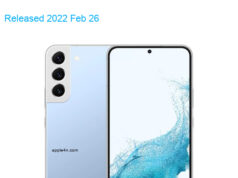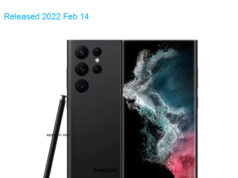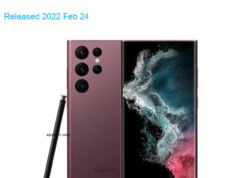| Brand | |
| Model | Pixel 9 Pro Fold UW 5G TD-LTE US 512GB GGH2X |
| Released | 2024 Sep 4 |
| Announced | 2024 Aug 13 |
| Hardware Designer | |
| Manufacturer | Foxconn |
| Codename | Google Comet |
| General Extras | Haptic touch feedback , Foldable screen |
| Device Category | Smartphone |
| Width | 77.1 mm |
| Height | 155.2 mm |
| Depth | 10.5 mm |
| Dimensions | 3.04×6.11×0.41 inches |
| Mass | 257 g |
| Platform | Android |
| Operating System | Google Android 14 (Upside Down Cake) |
| Software Extras | Voice Command , Navigation software , Augmented Reality (AR) , Intelligent personal assistant , Voice Recognition , Face Recognition |
| CPU Clock | 3100 MHz |
| CPU | Samsung Google Tensor G4 GS401 S5P9875 (Zuma Pro), 2024, 64 bit, octa-core, 4 nm, ARM Mali-G715 GPU |
| RAM Type | LPDDR5X SDRAM |
| RAM Capacity (converted) | 16 GiB RAM |
| Non-volatile Memory Interface | UFS 3.1 |
| Non-volatile Memory Capacity (converted) | 512 GB ROM |
| Display Hole | 1-hole |
| Display Diagonal | 160 mm |
| Resolution | 1080×2424 |
| Horizontal Full Bezel Width | 11.98 mm |
| Display Area Utilization | 79.5% |
| Pixel Density | 421 PPI |
| Display Type | AM-OLED display |
| Number of Display Scales | 16.8M |
| Display Refresh Rate | 120 Hz |
| Scratch Resistant Screen | Gorilla Glass Victus 2 |
| Secondary Display Diagonal: | 204 mm |
| Secondary Display Resolution | 2152×2076 |
| Secondary Display Pixel Density (dot pitch): | 372 PPI |
| Secondary Display Type: | AM-OLED 2nd display |
| Secondary Number of Display Colors/Scales: | 16.8M |
| Secondary Display Refresh Rate | 120 Hz |
| Graphical Controller | ARM Mali-G715MP7 |
| GPU Clock: | 940 MHz |
| A/V Out | No |
| Microphone(s) | 3 |
| Loudspeaker(s): | stereo |
| Audio Output: | USB Type-C |
| Supported Cellular Bands | GSM850 , GSM900 , GSM1800 , GSM1900 , UMTS2100 (B1) , UMTS1900 (B2) , UMTS1700/2100 (B4) , UMTS850 (B5) , UMTS800 (B6) , UMTS900 (B8) , UMTS800 (B19) , LTE2100 (B1) , LTE1900 (B2) , LTE1800 (B3) , LTE1700/2100 (B4) , LTE850 (B5) , LTE2600 (B7) , LTE900 (B8) , LTE700 (B12) , LTE700 (B13) , LTE700 (B14) , LTE700 (B17) , LTE800 (B18) , LTE800 (B19) , LTE800 (B20) , LTE1500 (B21) , LTE1900 (B25) , LTE850 (B26) , LTE700 (B28) , LTE700 (B29) , LTE2300 (B30) , LTE1500 (B32) , TD-LTE2600 (B38) , TD-LTE1900 (B39) , TD-LTE2300 (B40) , TD-LTE2500 (B41) , TD-LTE3500 (B42) , TD-LTE5900 (B46) , TD-LTE3600 (B48) , LTE1700/2100 (B66) , LTE600 (B71) , NR2100 (N1) , NR1900 (N2) , NR1800 (N3) , NR850 (N5) , NR2600 (N7) , NR900 (N8) , NR 700 (N12) , NR700 (N14) , NR800 (N20) , NR1900 (N25) , NR850 (N26) , NR700 (N28) , NR700 (N29) , NR2300 (N30) , TD-NR2600 (N38) , TD-NR2300 (N40) , TD-NR2500 (N41) , TD-NR3600 (N48) , NR1700/2100 (N66) , NR1700/2000 (N70) , NR600 (N71) , NR1500 (N75) , NR1500 (N76) , TD-NR3700 (N77) , TD-NR3500 (N78) , TD-NR4700 (N79) , TD-NR28G (N257) , TD-NR26G (N258) , TD-NR39G (N260) , TD-NR28G (N261) bands |
| Supported Cellular Data Links | GPRS , GPRS MSC33 , EDGE , UMTS , HSUPA , HSUPA 5.8 , HSDPA , HSPA+ 21.1 , DC-HSDPA 42.2 , LTE , LTE 100/50 , LTE 150/50 , LTE 225/50 , LTE 300/50 , LTE 300/75 , LTE 400/150 , LTE 1200/200 , NR 1500 , NR 2600 , NR 3700 , NR 4600 data links |
| SIM Card Slot | e-SIM , Nano-SIM (4FF) |
| Complementary Phone Services | Voice transmission , Voice speaker , Vibrate , Speakerphone , ANC , HD Voice , VoLTE , ViLTE |
| Sec. Supported Cellular Networks: | No |
| Touchscreen Type | Capacitive multi-touch screen |
| Expansion Interfaces | No |
| USB | USB 3.0 / 3.1 Gen 1 / 3.2 Gen 1×1 |
| USB Services | USB charging , USB fast charging , USB Host , USB OTG 1.3 , USB OTG 2.0 , USB PD , USB PD 2.0 , USB PD 3.0 |
| USB Connector | USB C reversible |
| Max. Charging Power | 21.0 W |
| Bluetooth | Bluetooth 5.3 |
| Wireless LAN | 802.11a , 802.11b , 802.11g , 802.11n , 802.11ac , 802.11ax , 802.11be |
| Wireless Services | Miracast , Wi-Fi Direct , Wi-Fi Tethering , WiDi , Wi-Fi Calling |
| NFC | NFC A , NFC B |
| FM Radio Receiver | No |
| Complementary Satellite Services | Simultaneous GPS , A-GPS , Dual-frequency GPS , Geotagging , QuickGPS |
| Supported GLONASS protocol(s) | L1OF , L2OF |
| Supported Galileo service(s) | E1 , E5a |
| Camera Placement | Rear |
| Camera Image Sensor | BSI CMOS |
| Image Sensor Pixel Size | 0.80 micrometer |
| Number of effective pixels | 48.0 MP camera |
| Aperture (W) | f/1.70 |
| Zoom | 5.0 x optical zoom |
| Focus | PD AF , Laser AF |
| Min. Equiv. Focal Length | 25 mm |
| Video Recording | 7680×4320 pixel |
| Flash | single LED |
| Camera Extra Functions | EIS , EIS (video) , OIS , Pixel unification , HDR photo , HDR video , Red-eye reduction , Slow motion video , Burst mode , Touch focus , Macro mode , Panorama Photo , Face detection , Face tagging , Smile detection , Face retouch , Face retouch (video) , Intelligent scene detection |
| Aux. Camera Image Sensor | BSI CMOS |
| Aux. Camera Number of Pixels | 10.5 MP aux. cam |
| Aux. Camera Aperture (W) | f/2.20 |
| Aux. Camera Focus | PD AF |
| Aux. Camera Extra Functions | HDR photo , HDR video , Red-eye reduction , Slow motion video , Burst mode , Touch focus , Panorama Photo , Face detection , Face tagging , Smile detection , Face retouch , Face retouch (video) , Intelligent scene detection |
| Aux. 2 Camera Image Sensor | BSI CMOS |
| Aux. 2 Camera Number of Pixels | 10.9 MP aux. 2 cam |
| Aux. 2 Camera Aperture (W) | f/3.10 |
| Aux. 2 Cam. Min. Equiv. Focal Length | 112 mm |
| Aux. 3 Camera Image Sensor | No |
| Aux. 4 Camera Image Sensor | No |
| Secondary Camera Placement | Front |
| Secondary Camera Sensor | BSI CMOS |
| Secondary Camera Number of pixels | 10.0 MP sec. cam |
| Secondary Aperture (W) | f/2.20 |
| Secondary Camera Focus | PD AF |
| Secondary Video Recording | 3840×2160 pixel |
| Secondary Camera Extra Functions | EIS , EIS (video) , Pixel unification , HDR photo , HDR video , Slow motion video , Burst mode , Touch focus , Macro mode , Panorama Photo , Face detection , Face tagging , Smile detection , Face retouch , Face retouch (video) |
| Sec. Aux. Cam. Image Sensor | BSI CMOS |
| Sec. Aux. Camera Number of Pixels | 10.0 MP sec. aux. camera |
| Built-in compass | Yes |
| Built-in accelerometer | 3D accelerometer |
| Built-in gyroscope | 3D gyro |
| Additional sensors | Barometer , FP sensor , L sensor , P sensor , Step counter , Thermometer |
| Protection from solid materials | Yes |
| Protection from liquids | 8 Protected against immersion beyond 1m of depth |
| Immersion into liquids (depth limit) | 150 cm |
| Immersion into liquids time limit | 30 min |
| Battery | Li-ion polymer (LiPo) |
| Battery Cells in Parallel | Yes |
| Nominal Battery Voltage | 3.89 Volts |
| Nominal Battery Capacity | 4650 mAh battery |
| Nominal Battery Energy | 18.09 Wh |
| Estimated Battery Life | 24.0 hours |
| Wireless Charging | Qi , Qi reverse |
| Max. Wireless Charging Power | 7.5 W |
| Market Countries | USA |
| Market Regions | North America |
| Price | 1919.00 USD |
| Added | 2025-01-26 |
Specifications data description of this 📱Google Pixel 9 Pro Fold UW 5G TD-LTE US 512GB GGH2X📱
Title: Google Pixel 9 Pro Fold UW 5G TD-LTE US 512GB GGH2X: A Comprehensive Specification Overview
Introduction:
Welcome to the latest addition to Google’s flagship smartphone lineup, the Pixel 9 Pro Fold UW 5G TD-LTE US 512GB GGH2X! This device promises to deliver an extraordinary experience with its top-of-the-line specifications and innovative features. Let’s explore the details of this exciting new technology.
Lineup:
The Pixel 9 Pro Fold UW 5G TD-LTE US is part of Google’s commitment to offering a premium lineup of smartphones that cater to various needs. This particular model offers a foldable design, Ultra-wideband connectivity, and 5G capabilities with TD-LTE network support.
Design:
The Pixel 9 Pro Fold UW boasts a sleek foldable design that ensures a compact and portable form factor. The device features two main displays, allowing for multitasking capabilities and a seamless transition between the two screens. The high-resolution screens offer a stunning visual experience, while the premium build materials ensure durability.
🌐 Network: 5G TD-LTE US | 📅 Launch: 2023 Q3
🏋️ Body: Foldable Design, 174.7 x 138.6 x 7.1 mm (unfolded), 174.7 x 65.8 x 15.4 mm (folded), 319 grams | 🌈 Display: 7.6-inch Foldable Dynamic AMOLED, 120Hz, HDR10+, 3088 x 1768 pixels (unfolded), 6.2-inch Cover Display, 120Hz, HDR10+, 2268 x 1080 pixels (folded) |
🤖 OS: Android 13.0 | 🛠️ Chipset: Qualcomm Snapdragon 8 Gen 2 | 🚀 Chipset speed: Octa-core, up to 3.2 GHz | 💪 CPU: Octa-core Kryo 700 | 🖥️ GPU: Adreno 730 | 🧠 Memory: 12GB LPDDR5 | 🗂️ Storage: 512GB UFS 3.1 |
📷 Camera: Rear: 50 MP (Wide, OIS, PDAF, Laser AF), 48 MP (Telephoto, OIS, PDAF, 2x optical zoom, Laser AF), 12 MP (Ultrawide), Front: 12 MP (Punch hole, HDR) | 🔈 Sound: Stereo speakers, 32-bit/384kHz audio | 📡 Comms: Wi-Fi 802.11 a/b/g/n/ac/axe, Bluetooth 5.3, GPS, NFC, USB Type-C 4.0 | 🎁 Features: Water and Dust Resistance (IP68), In-Display Fingerprint Sensor, Face Unlock | 🔋 Battery: 5000 mAh (non-removable), Fast Charging 65W, Wireless Charging 15W, Reverse Wireless Charging | 🔌 USB: USB Type-C 4.0
Specifications:
The Pixel 9 Pro Fold UW has an impressive set of specifications that cater to both casual users and power users alike.
Under the hood, you will find the powerful Qualcomm Snapdragon 8 Gen 2 chipset, providing lightning-fast performance and power efficiency. The chipset is paired with an octa-core processor, an Adreno 730 GPU, and a massive 12GB of LPDDR5 RAM to ensure smooth multitasking capabilities.
The device features a 50MP primary camera, a 48MP telephoto lens, and a 12MP ultrawide sensor for versatile photography options. For selfies, users can enjoy a 12MP front-facing camera. The AMOLED displays, both foldable and cover, promise high-resolution visuals, enhanced contrast, and vibrant color reproduction.
Battery life is excellent, thanks to a large 5000 mAh non-removable battery, and you can charge your device quickly with the 65W Fast Charging capabilities.
Conclusion:
We hope this comprehensive overview of the Google Pixel 9 Pro Fold UW 5G TD-LTE US 512GB GGH2X has helped you understand the exceptional specifications and features this smartphone offers. We invite you to leave your thoughts, opinions, or any questions you might have in the comments below!







